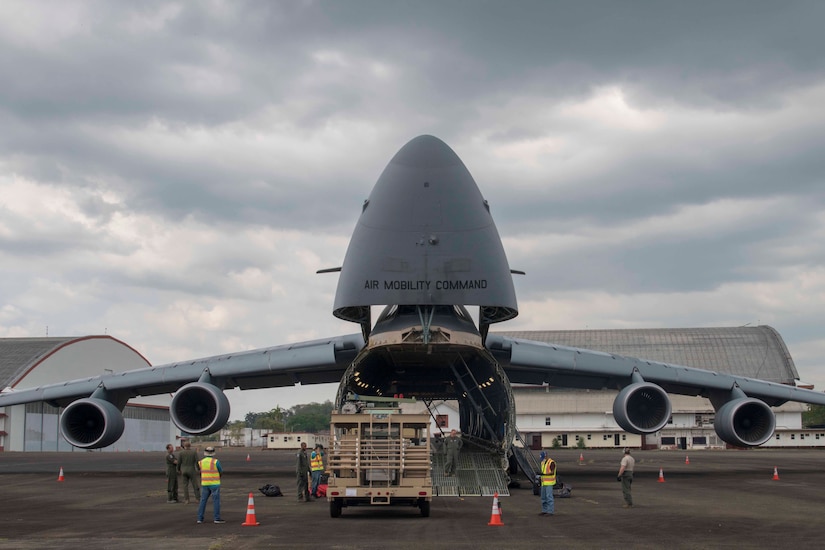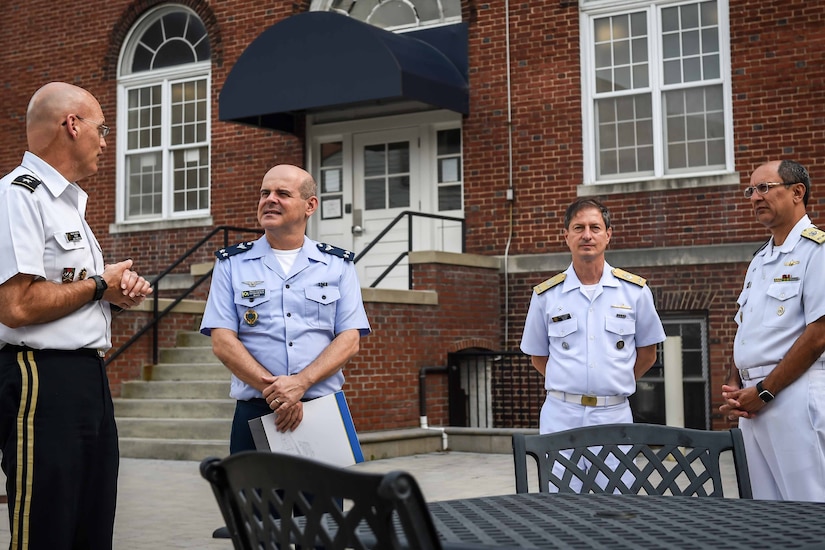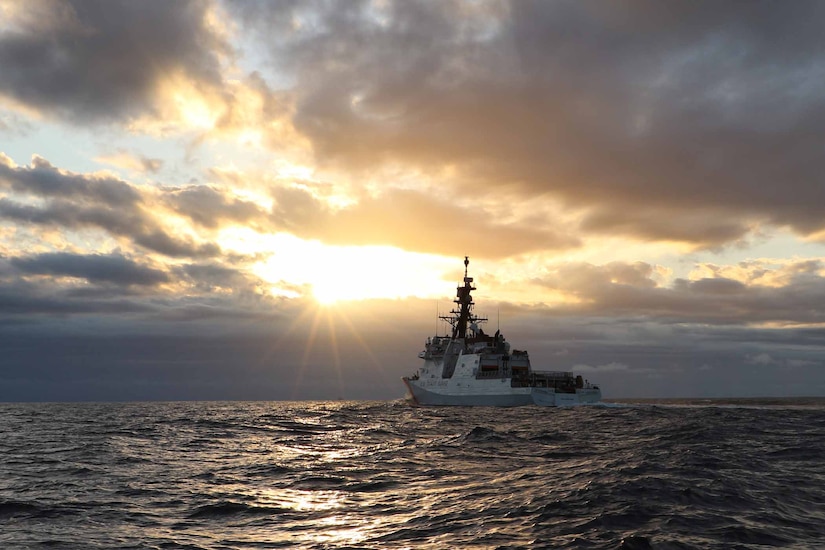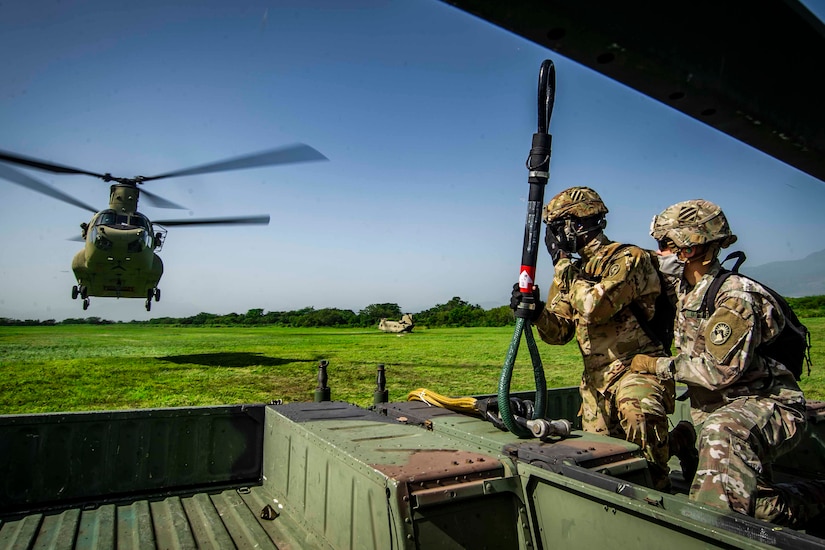Oct. 9, 2020 | , DOD News
A sign outside an office in the Pentagon summarizes the feelings of the people inside the office: "The Western Hemisphere Is the Best Hemisphere."
Sergio De La Peña, the deputy assistant secretary of defense for Western Hemisphere affairs, says that, despite some problems, the "neighborhood" is safe and prospering. Still, this condition requires constant attention and involvement.

De La Peña's office provides policy guidance for U.S. Northern Command and U.S. Southern Command. It has responsibility stretching from the Arctic to the Antarctic. It is half the globe.
De La Peña is the only deputy assistant secretary for the region. In contrast, the rest of the globe has eight deputy assistant secretaries.
The Western Hemisphere is relatively peaceful compared to the rest of the world, but it isn't without problems. Transnational criminal organizations call the hemisphere home. Drug and human trafficking are vast problems throughout the hemisphere. Economic disparities exacerbate migration trends and there are a few countries — Cuba, Venezuela and Nicaragua — that just can't get with the program, De La Peña said.
And the hemisphere is not immune to problems arising in other parts of the world. China and Russia are rising great power competitors of the United States and they see some countries in the region as ripe targets. China and Russia look for any way to sow dissension among friends and create doubt and uncertainty in alliances.

Terrorist organizations, too, look for ungoverned or under-governed areas in which to establish safe havens. The terrorist groups also look to cooperate with transnational criminal organizations.
Countering these threats requires constant monitoring, communication and effort. Thankfully, De La Peña said, the extent and level of cooperation among the nations of the hemisphere may be at its highest levels to date.
"We are a collaborative, prosperous and secure hemisphere," he said. The United States is working with nations of the hemisphere to improve lives throughout the region. The United States is not imposing its will, he said, but listening to its neighbors as cooperatively, the region moves forward.
"Transparency, the rule of law, human rights, the rights of … minorities," are all values shared among the nations of the Western Hemisphere, De La Peña said. It has been a tough row to get to this point as many of the nations emerged from dictatorships. The progression has been a "whole-of-governments" effort — meaning all elements of U.S. influence and power worked with the elements of influence and power in partner nations. Democracy cannot be imposed on a nation or people, but must be the desire of the population.
Economic, diplomatic and intelligence/information is part of the effort, but the military plays a role in the effort, as well.

U.S. Southern Command has outstanding contacts and relations with the nations of Central and South America and the Caribbean, De La Peña said.
The main U.S. military effort is helping the nations of the region build capabilities to guard their sovereignty. The militaries must answer to their civilian leaders and respect the human rights of their citizens.
This is working. Many of the Central and South American militaries have embraced this effort and, frankly, have become "exporters" of security. Colombia and El Salvador provided forces in Iraq in the early days of Operation Iraqi Freedom. Other hemispheric nations are providing trained, professional forces to United Nations missions.
But the most important aspect of this is the nations are working together in the region in ways they did not in the past.
Many hemispheric nations are exchanging intelligence and information on shared threats. Service members are working bilaterally with the United States and multilaterally to improve responses and interoperability.
"What we are asking is for them to be situationally aware of their own environment and then be willing to share as they see fit," De La Peña said. "It's like a neighborhood watch; nations must have situational awareness over their own sovereign space."
Maintaining situational awareness over land, sea and air is tough enough, but, now, the new domains of space and cyber add new levels of complexities to an already daunting task, he said.
But those new domains are key to understanding threats and combating them.

There are very few threats that reside completely within the borders of one nation. Cooperating and sharing is absolutely essential to beating back those threats.
On the military-to-military relations side of the equation, leaders have good relationships. They have a common understanding of threats, and they can advise civilian leaders on the strategies necessary to defeat them, De La Peña said.
"Militaries can help provide guidance and leadership," De La Peña said. "That security is key because if you don't have security, you're not going to have prosperity."
The United States will continue its close work with hemispheric nations. The Inter-American Defense College at Fort Lesley J. McNair in Washington is a premiere venue for collaboration. Professional military education – officer and noncommissioned officer – are other ripe areas where U.S. and allied officers can get to know one another and learn how each thinks and acts.
The interaction among the neighbors requires constant maintenance, De La Peña said. The United States cannot take hemispheric allies for granted.








No comments:
Post a Comment